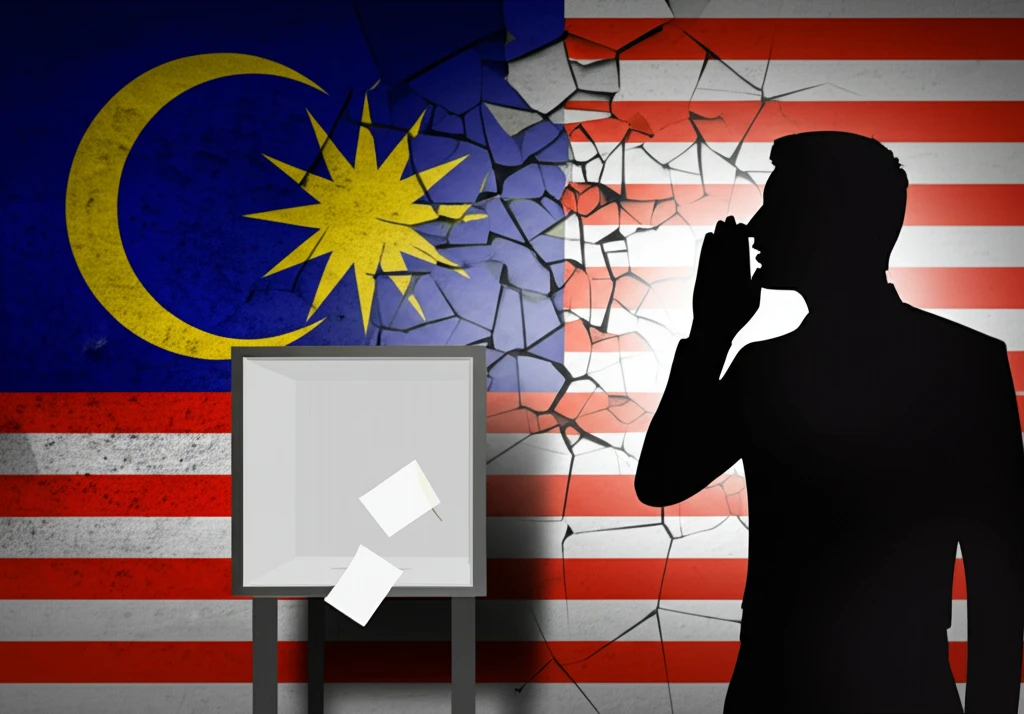
Decoding the Polls: Why Malaysia's Election Predictions Missed the Mark
"Explore the factors behind inaccurate election polls in Malaysia and what it reveals about voter behavior and political dynamics."
The 2018 Malaysian general election marked a turning point in the nation's political history, witnessing the unexpected defeat of the Barisan Nasional (BN) coalition, which had held power for over six decades. This outcome stunned many, particularly because pre-election opinion polls had largely failed to predict such a dramatic shift. While the industry had become increasingly integrated into the political landscape, its reliability was called into question as the actual results diverged significantly from the forecasts.
One of the primary challenges in accurately gauging public sentiment in Malaysia lies in the reluctance of many voters to openly share their political preferences. This reticence stems from various factors, including social pressures, fear of repercussions, and a general distrust of pollsters. Unlike countries where voters are more forthcoming, Malaysian pollsters face the daunting task of deciphering veiled intentions and projecting outcomes based on limited and potentially biased data.
This article delves into the reasons behind the failure of opinion polls to accurately predict the 2018 Malaysian election results. By examining the complexities of voter behavior, the influence of ethnic and religious divides, and the impact of social and political dynamics, we aim to provide a comprehensive understanding of the challenges and limitations of political polling in a diverse and evolving society.
The Reluctant Voter: Unmasking Malaysia's 'Spiral of Silence'

Malaysian pollsters face a unique hurdle: a significant portion of the population is hesitant to reveal their true political leanings. This reluctance, regardless of whether interviews are conducted in person or over the phone, makes it difficult to obtain an accurate representation of public sentiment. Unlike their counterparts in Indonesia and the Philippines, who often find greater success in eliciting honest responses, Malaysian pollsters must navigate a landscape of veiled intentions and carefully guarded opinions.
- Social Pressure: Fear of judgment or ostracism from family, friends, or community members.
- Political Reprisals: Concerns about potential repercussions from authorities or political opponents.
- Cultural Norms: Traditional values that discourage open expression of dissenting opinions.
- Distrust of Pollsters: Skepticism about the confidentiality and accuracy of polls.
Lessons Learned: The Future of Polling in Malaysia
The 2018 Malaysian election serves as a valuable case study for understanding the limitations of opinion polls in complex and rapidly evolving societies. While polls can provide useful insights into public sentiment, they should not be relied upon as the sole predictor of election outcomes. Factors such as voter reticence, ethnic and religious divides, and the 'spiral of silence' can significantly skew results and lead to inaccurate forecasts. Moving forward, pollsters need to adopt more sophisticated methodologies that account for these complexities and provide a more nuanced understanding of voter behavior. This includes incorporating qualitative research, exploring alternative data sources, and acknowledging the inherent limitations of polling in a diverse and dynamic political landscape.
